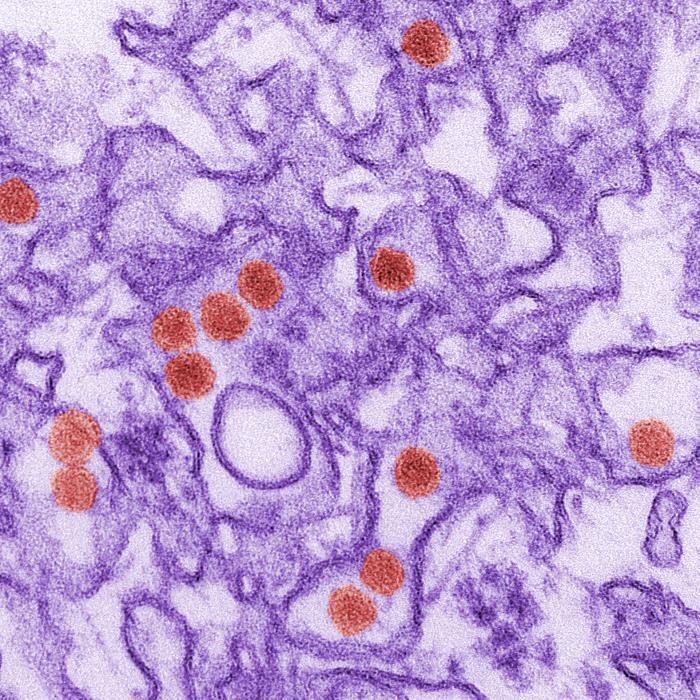At Least 9 Pregnant Women in US Infected with Zika: CDC

Nine pregnant women in the U.S. have now been confirmed to have had Zika virus infections that they contracted through travel to places where the virus is spreading, U.S. health officials said today. Separate from those cases, researchers have confirmed that six women in the U.S. have contracted the virus through sexual contact with males who had recently traveled to places where the virus is active.
Among the nine cases in the pregnant women, three babies have been born, including two who showed no signs of illness and one who had severe microcephaly, according to a new report from the Centers for Disease Control and Prevention. Two of the other women had miscarriages, and two others decided to terminate their pregnancies; in at least one of the terminated pregnancies, there were early signs of abnormalities in the fetus, Dr. Denise Jamieson, a researcher at the CDC and an author of the new report, told reporters at a news conference today (Feb. 26).
Two women are continuing their pregnancies, and so far, there have been no signs of problems with the fetuses. In addition, 10 more cases of pregnant women who may possibly have had Zika virus infections are being investigated, according to the report. [Zika Virus FAQs: Top Questions Answered]
In recent weeks, the CDC has advised pregnant women to postpone travel to Zika-affected areas, and for men who travel to such areas to use a condom or abstain from sex, especially if their partner is pregnant. The new information underscores the importance of following that advice, said CDC Director Dr. Tom Frieden.
"The bottom line hasn't changed," Frieden said at the news conference. "The most serious risk of this virus is to pregnant women," he said.
Researchers have said that Zika infections during early pregnancy, when brain development is rapid, may potentially be more closely linked with brain development problems than infections later in pregnancy. However, much remains to be learned about how Zika infections affect pregnancies.
The new report said that, of the nine pregnant women confirmed to have been infected with Zika through travel, six were infected during their first trimester of pregnancy. These cases included both of the miscarriages, both of the terminations and the case of the infant with microcephaly, along with one of the pregnancies that is still continuing, the report said.
Get the world’s most fascinating discoveries delivered straight to your inbox.
Two of the pregnant women had symptoms of Zika infections during their second trimester of pregnancy, and one of these women gave birth to an apparently healthy infant, while the other pregnancy is continuing. The one pregnant woman who reported Zika symptoms during her third trimester of pregnancy delivered a healthy infant, the report said.
Only one in five people who become infected with the Zika virus shows symptoms of their infections, the CDC has said. The CDC recommends that pregnant women who do travel to Zika-affected regions be tested after they return, even if they have no symptoms.
In recent weeks, there have been rapid increases in the number of cases of Zika in places where the virus was previously reported, and there have been increases in cases of people in the U.S. traveling to Zika-affected areas and returning with infections. Both of these increases were expected, Frieden said.
But the CDC did not anticipate the jump in the number of cases involving sexual transmission of the virus, he said. The agency is working to learn more about this type of transmission, including how long the virus may persist at infectious levels in semen.
All six cases in the new report involved vaginal intercourse without a condom, during the time when the male who traveled to a Zika-affected area was having symptoms of his infection, or shortly after his symptoms went away, the report said.
Women who live in Zika-affected areas should do their best to avoid mosquito bites, and communities should implement efforts to kill mosquitoes and prevent them from breeding, Frieden said.
The CDC is currently conducting studies to better understand the link between Zika and microcephaly.
Earlier this week, in a paper published in the journal PLOSNeglected Tropical Diseases, researchers reported a stillbirth to a woman in Brazil linked to Zika. Large parts of the infant's brain were missing, and the researchers also found problems outside of the central nervous system. Much more research is needed to determine the effects of Zika virus on the health of a fetus, the researchers said.
Follow Live Science @livescience, Facebook & Google+. Originally published on Live Science.

 Live Science Plus
Live Science Plus





